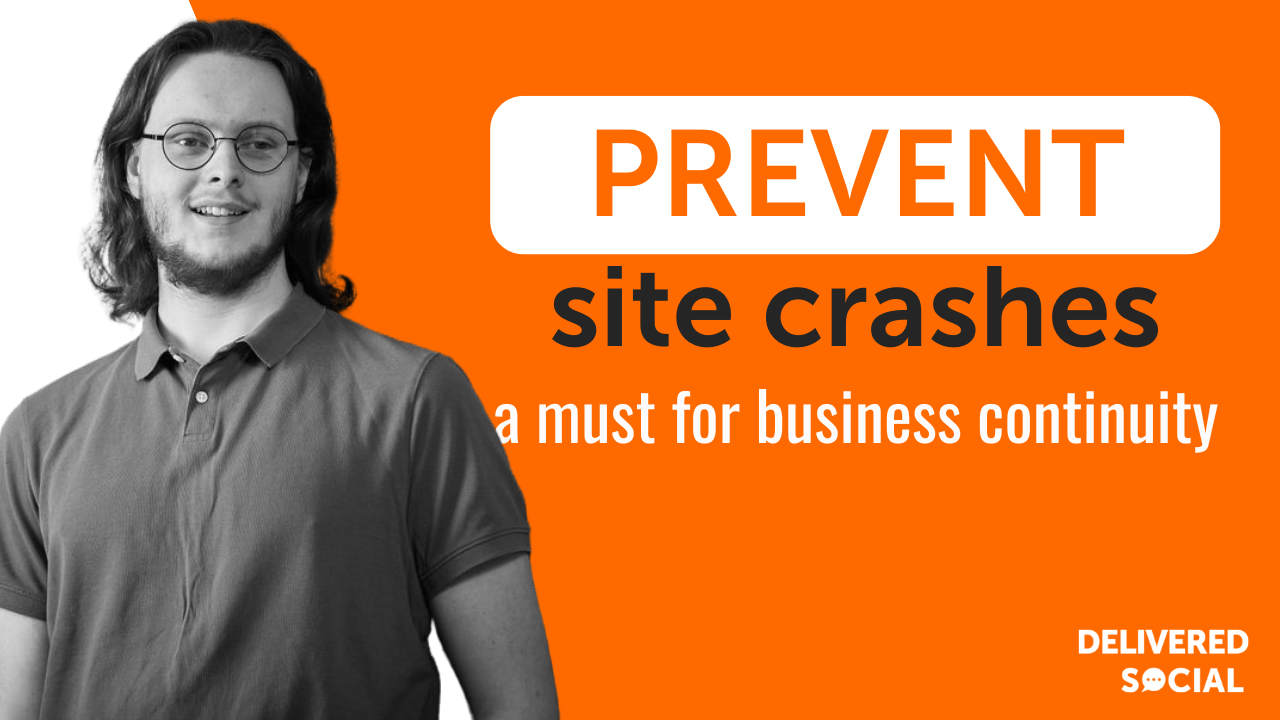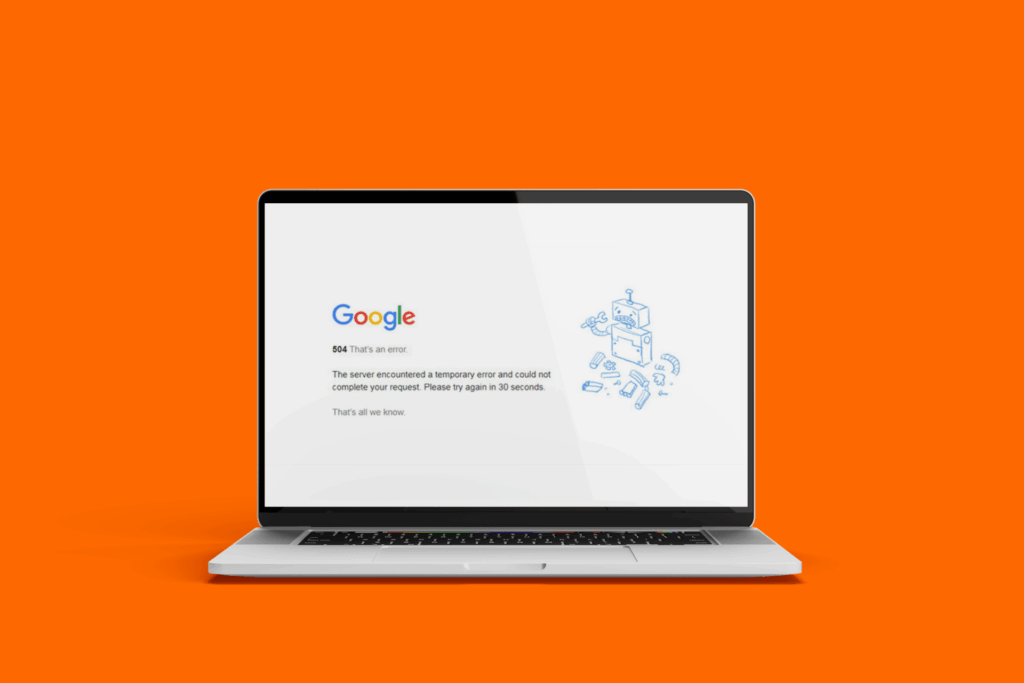
Introduction
Picture this: you’ve launched a big online campaign, spent weeks building hype, and now the traffic is flooding in, only for your website to crash. All that momentum is gone in seconds. For many businesses, this isn’t just frustrating, it’s costly. A website crash during a critical sales period or high-traffic moment can result in lost revenue, damaged reputation, and unhappy customers who may not return.
In today’s fast-paced digital world, your website isn’t just your online presence it’s your shopfront, your sales team, and often your first impression. It needs to work, reliably, around the clock. Preventing website crashes isn’t just a technical concern left to IT teams or developers; it’s a key part of keeping your business running smoothly and ensuring customer trust.
From seasonal surges like Black Friday to unexpected viral moments or even planned product launches, websites face more pressure than ever before. Without the right planning and support, even a brief outage can lead to long-term losses, both financially and reputationally.
In this blog, we’ll break down what causes website crashes, why uptime is crucial for your brand, and most importantly, how to prevent downtime before it happens. Whether you run a local shop or a growing e-commerce site, this guide will give you the tools and strategies you need to keep things online and your customers happy.
What Causes Website Crashes?
Website crashes can happen for a number of reasons, and often at the worst possible time. Understanding what causes them is the first step in stopping them from happening to your business.
1. Traffic Spikes
Sudden surges in visitors can overwhelm your server. This is common during big sales events, viral moments, or product launches. If your website isn’t built to scale with demand, it can slow down dramatically or go offline altogether.
2. Server Overload or Poor Hosting
Cheap or outdated hosting plans often can’t handle modern traffic levels or heavier websites. If your server doesn’t have the capacity or speed to manage user activity, it increases the risk of downtime.
3. Coding Errors or Plugin Conflicts
A single line of faulty code, or an out-of-date plugin, can take down an entire site. With content management systems like WordPress, it’s easy to install third-party plugins, but not all of them play nicely together.
4. Cyber Attacks
DDoS (Distributed Denial of Service) attacks flood your server with traffic until it fails. These are unfortunately common and can target any business, not just big brands.
5. Failed Software Updates
Occasionally, updating your CMS or themes can break functionality or conflict with other systems, especially if updates are done without proper testing.
6. Lack of Regular Maintenance
Websites need upkeep. Ignoring basic maintenance, like clearing logs, updating software, or managing databases, can lead to avoidable technical issues.
Each of these causes is preventable with the right preparation and we’ll walk you through how to do that in the next section.

Strategies for Preventing Website Crashes
Preventing crashes starts with preparation and proactive measures. Below are key strategies you can implement to ensure your website stays up and running smoothly, even during peak traffic periods or unexpected events.
1. Invest in Reliable Hosting Services
Your hosting plan is the foundation of your website’s performance. Opt for a reliable provider that offers scalable resources, especially if you’re expecting traffic surges. Cloud hosting is a great choice, as it allows for flexible scaling based on demand. Services like AWS, Google Cloud, or SiteGround offer excellent uptime and fast loading speeds. For e-commerce businesses, managed hosting services such as WP Engine or Kinsta are often more stable and secure.
2. Load Testing Before Big Events
It’s essential to test how your website performs under heavy traffic before launch days, sales events, or product launches. Load testing tools, such as Load Impact or BlazeMeter, simulate high levels of traffic and help identify potential weaknesses in your website. Regularly testing your site’s performance ensures that it can handle increased demand without crashing.
3. Implement a Content Delivery Network (CDN)
A CDN speeds up website loading times by distributing content across multiple servers around the world. This not only improves performance but also reduces the chances of your server being overwhelmed by too many visitors at once. Cloudflare and StackPath are popular CDN options that offer additional security features like DDoS protection.
4. Regularly Update and Maintain Your Website
Keep your website’s software, plugins, and themes up to date to avoid vulnerabilities and incompatibilities that could cause issues. Regular updates also fix bugs, enhance performance, and protect against security threats. Schedule monthly maintenance tasks to check for broken links, outdated plugins, or slow-loading pages that could affect your site’s performance.
5. Enable Caching
Caching stores static copies of your website’s content, so it doesn’t need to be loaded from scratch every time a visitor arrives. This helps reduce the load on your server and speeds up your site. Popular caching plugins like W3 Total Cache or WP Rocket can improve your site’s performance by enabling faster content delivery.
6. Create a Disaster Recovery Plan
Even with all these measures in place, things can still go wrong. Having a disaster recovery plan ensures that you can quickly recover from a crash. This plan should include regular backups of your website, so in case of an emergency, you can restore it quickly and minimise downtime.
7. Use Queueing Systems During Traffic Peaks
If you anticipate high demand, a queueing system like Queue-it can help manage traffic during peak periods. This technology places visitors in a virtual waiting room, ensuring that the server isn’t overwhelmed and that users are still engaged while they wait to access the site.
By implementing these strategies, you’ll not only prevent website crashes but also enhance the overall user experience, ensuring that your site stays reliable and efficient under all circumstances.
The Role of Web Developers and Digital Agencies
Web developers and digital agencies play a crucial role in preventing website crashes, ensuring that your website is designed to handle high traffic and perform consistently. While some business owners may think they can manage everything themselves, working with experienced professionals brings invaluable expertise, particularly when it comes to handling technical challenges.
1. Expert Site Monitoring and Maintenance
One of the key responsibilities of web developers and agencies is to set up continuous monitoring systems for your website. They can implement tools that track server performance, uptime, and traffic levels in real time. This allows for quick identification of potential issues before they escalate into a crash. Regular site audits also help catch any weaknesses that could leave your site vulnerable.
2. Optimising for Scalability
Experienced developers know how to build websites that are scalable, meaning they can grow alongside your business. By using flexible hosting solutions, CDN integration, and efficient code, they ensure that your website can manage high traffic volumes without faltering. This is particularly important during peak seasons or product launches when your site may receive more visitors than usual.
3. Security and Backups
Security vulnerabilities can cause crashes, particularly when hackers target your site. Digital agencies help by implementing robust security measures like SSL certificates, firewalls, and anti-malware software. They also ensure that regular backups are taken, so if something does go wrong, your site can be quickly restored with minimal disruption.
4. Technical Support During Critical Times
During times of high demand or unforeseen technical issues, having a developer or agency on call is essential. They can provide immediate support to troubleshoot and fix any issues, keeping your website up and running when it matters most.
Working with a professional team ensures your website is not only built to handle traffic but is also well-maintained and secure, which is key to preventing website crashes and ensuring business continuity.
Tools That Help Keep Your Website Online
Keeping your website online and running smoothly is easier with the right tools. There are numerous solutions designed to prevent downtime, optimise performance, and protect against potential crashes. Here are some of the most effective tools that businesses can use to ensure their websites stay up and operational.
1. Cloudflare (DDoS Protection & CDN)
Cloudflare is an essential tool for preventing website crashes caused by traffic surges or cyberattacks. Their content delivery network (CDN) speeds up website performance by distributing content across global servers, while their DDoS protection ensures your site remains online even when under attack. Cloudflare also offers a wide range of security features to protect against hacking attempts.
2. Uptime Robot
Uptime Robot is a free, user-friendly monitoring tool that checks your website’s uptime every 5 minutes. It sends you alerts when your website goes down, helping you identify issues immediately. This proactive monitoring allows you to act quickly and avoid prolonged downtime.
3. Pingdom
Pingdom offers detailed insights into website performance and uptime. It monitors your site’s load time, downtime, and overall health, and provides reports that highlight areas of improvement. Pingdom also allows you to see how your website performs in different regions, ensuring that your global audience has a consistent experience.
4. WP Rocket (Caching Plugin)
WP Rocket is a popular caching plugin for WordPress that speeds up websites by caching static content, reducing server load. It helps improve the overall speed and performance of your site, particularly during high-traffic events, by ensuring faster loading times and reducing the risk of crashes due to slow server responses.
5. BackupBuddy
Having a solid backup system in place is essential for website recovery. BackupBuddy allows you to automatically back up your entire website, including databases, files, and plugins. If your site goes down, you can easily restore it to its previous state with just a few clicks.
6. New Relic (Performance Monitoring)
New Relic is an advanced performance monitoring tool that helps businesses identify slow-loading pages, bottlenecks, and potential system failures. By continuously monitoring your site’s performance, New Relic provides in-depth data that helps optimise website functionality and prevent crashes.
Using these tools not only protects your site from potential crashes but also ensures your visitors have a smooth, uninterrupted experience. Keeping your site in top shape with the right tools is a smart investment in both uptime and user satisfaction.

Frequently Asked Questions (FAQ)
1. How can I prevent my website from crashing during peak traffic times?
The best way to prevent crashes during peak traffic is by investing in scalable hosting services and implementing a content delivery network (CDN) like Cloudflare. Load testing before major events or campaigns can also ensure your site is prepared to handle increased traffic.
2. How often should I perform website maintenance?
Regular website maintenance is crucial. Perform audits at least once a month to check for outdated plugins, security vulnerabilities, and slow-loading pages. Also, ensure your site’s software and security patches are up to date.
3. What’s the difference between uptime monitoring and load testing?
Uptime monitoring checks if your site is live and functioning properly, while load testing simulates high traffic to see how well your site handles a surge. Both are essential for preventing crashes.
4. Can I fix a website crash myself?
It depends on the issue. For some, like server overload, the solution might involve contacting your hosting provider. For others, like coding errors, it may require a developer to fix the problem.
Interested In Working Together?
Introducing Delivered Social. We’re The Most-Rated Digital Agency In Surrey & Hampshire – We’ve Got To Be Doing Something Right.
Delivered Social is a digital marketing agency with one mission—to help businesses grow. We’re famous in Guildford and Portsmouth for our social clinics. We believe in free advice. We build lasting relationships because our team prides itself on being helpful, which our clients appreciate.
If you are looking for a new website or an agency to manage your social media presence, we can help.
If you need something slightly different, here's a super handy list of all our services, or you can always email us.


















